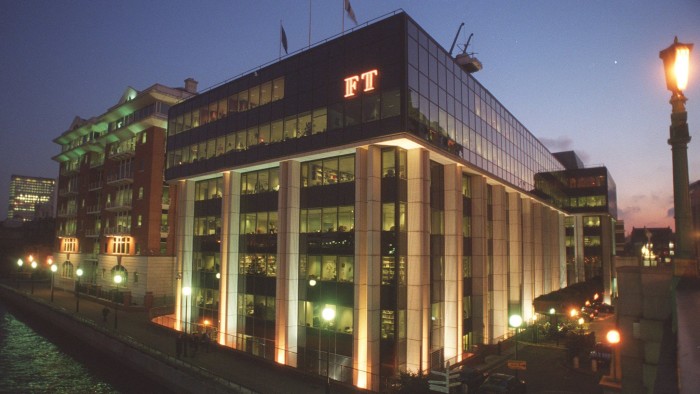A new future for the FT, without fear or favour

Roula Khalaf, Editor of the FT, selects her favourite stories in this weekly newsletter.
Throughout its 127-year history, the Financial Times has occupied a special place in journalism, enjoying a precious bond of trust with readers around the world.
The FT has thrived, and continues to thrive, in an age of global economic interdependence defined by the free movement of capital, goods and people and instant digital communication.
The FT’s reputation rests on its editorial independence, an instinctively internationalist outlook, and its base in London at the centre of the global financial marketplace, as well as the profitability which underwrites that editorial independence.
The news that Pearson has decided to relinquish the title it has held since 1957 and sell to Nikkei, the Japanese newspaper publisher, is a matter of global media interest. It is also a matter of public interest in the UK.
This may sound self-serving but FT readers have come to appreciate our commitment to independent quality journalism, however unforgiving they are if we stray from the accuracy, authority and integrity which we consider to be intrinsic to our journalism.
We welcome our new owner’s public affirmation of our independence, and we recognise Nikkei’s own proud history going back to 1876 as a serious financial news organisation.
Under Pearson’s ownership, the FT has become a leading global news organisation. We pioneered the printing of the newspaper in Frankfurt in 1979. We launched a fully-fledged US edition 20 years later, and we set up an Asia operation based in Hong Kong after the turn of the century.
Over the past decade, the pink Financial Times has been in the vanguard of the digital revolution, building a profitable subscription business among the people who make or influence decisions in business, finance and public affairs around the world.
Pearson’s support for editorial independence has been unwavering, in good times and bad. Our owners have understood that this means the right to investigate and the liberty to voice uncomfortable opinions. We report deeply on the City of London and Brussels but we are not a house organ. We adhere to the liberal market tradition of Adam Smith, but also to the robust irreverence of Smollett and Swift.
Pearson has decided that it wishes to focus on its burgeoning education business. A successful marriage has ended in an amicable parting. We salute Pearson’s support of editorial excellence and its willingness to nurture homegrown talent that helps to instil the value of collaboration in the highly competitive news business.
These qualities have served the FT handily during a period of momentous change in our industry. The exponential growth of broadband, the erosion of print, the rise of social media challenge how publishers produce and disseminate journalism.
Today, news and views are distributed in real time on multiple platforms, from the mobile phone to the tablet and desktop computer. In a crowded market place, the challenge and opportunity for the FT is to remain an authoritative purveyor of information and a financially sustainable business in a world of deep -pocketed rivals.
And the opportunity is enormous. In today’s world, English is the premier business language. All top-class companies are looking beyond their borders for growth. For the FT, with its skill in connecting the dots between business, finance and politics, the prize is especially alluring.
In the spirit of adventure and mutual trust, the FT joins the Nikkei family and looks forward to writing the next chapter in our distinguished histories.
Comments